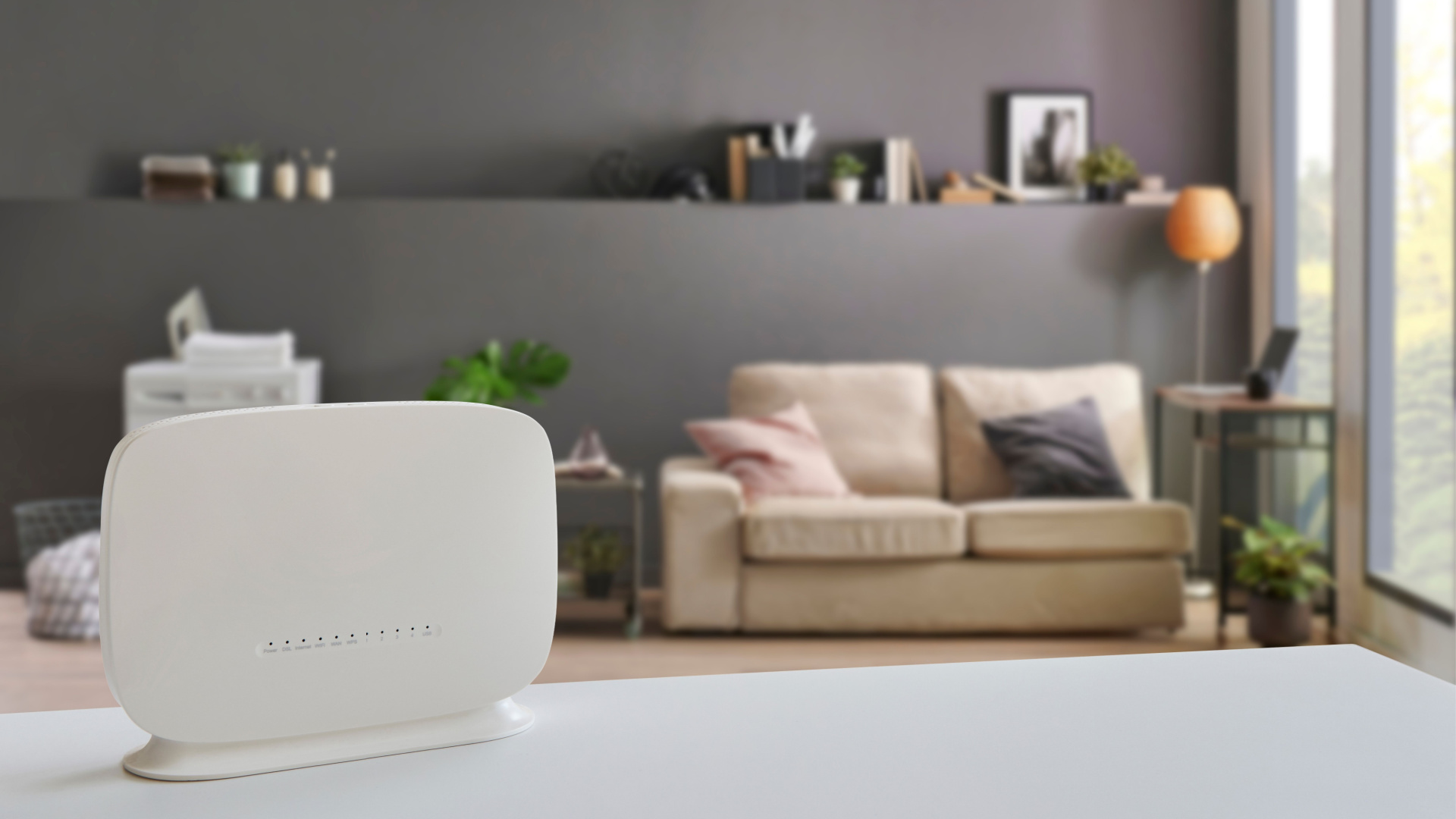
Finding the best broadband deal is tricky. Navigating the sea of broadband jargon, which could spell either dreams or disaster for your home connection, all whilst having to consider just how costly it could become for you, makes the need to make a strong, informed, and, most importantly, successful decision crucial for you and your home.
In the past, traditional fibre broadband deals have been the king. Originating with FTTC (fibre to the cabinet) plans, many homes now rely on this tried and tested method to get their devices connected, and with the full fibre rollout in full swing across the UK, FTTP (fibre to the premises) deals are likely to soon be taking their place as the go-to choice for many, but this doesn't have to be the case for all.
Since improvements in the 5G infrastructure in the UK were established a few years ago, many traditional broadband providers, as well as several previously solely mobile plan providers, have turned to offering a new broadband solution, this being 5G broadband.
The benefits of 5G broadband for your home fall into four key areas, flexibility, simplicity, and the fact that 5G broadband can cut your bill costs by quite a fair chunk. However, this does not mean that 5G broadband suits everyone, so to help you choose, here's a breakdown on some of the factors that might change your mind as to whether you choose 5G broadband or fibre.
Where do you live?
A blunt question, I know. But fundamentally, your living circumstances can cause big variations in the quality of connection you have on offer to you and what the best option might be, some of these factors include:
Location
Although most of the country (97% according to Uswitch) now has access to at least an FTTC fibre connection, this doesn't necessarily guarantee that the connection level you receive will be to the standard you require. FTTC fibre connections often only reach a maximum of 70Mbps (if using Openreach infrastructure), which, in an age of streaming, isn't always going to cut it.
FTTP connections are thought to currently only be available to around 59% of the country. These connections, more commonly referred to as Full Fibre, are the connection type which will suit most families if you're looking to stick to a fibre connection, but this doesn't mean it can't be matched (or even beaten) by 5G broadband, but more on that later!
Sign up for breaking news, reviews, opinion, top tech deals, and more.
Type of building
Ever been in an older building and wondered why you have no signal? Essentially, the older the building, the more likely it is that your connection could be weak, this goes for both fibre and 5G broadband though. That might make it seem like a score draw between the two options, however, given the options regarding cables, power-line adaptations and more which are available with a fibre connection, it's likely a better idea to choose fibre should your house be on the older side.
What's more, for those of you who live in flats, there's even more to consider. When living in a block of flats, you can encounter numerous limitations that may restrict your access to efficient fibre broadband. First and foremost, you can, in some instances, have little to no control over the infrastructure available to your building. Secondly, if you are in a large high rise, with maybe hundreds of families living in the same building, you can encounter limitations to your speeds based on the sheer number of signals being sent around a relatively small area. For people in this scenario then, 5G broadband is a definite option, with no need for engineers to install your connection, nor any reliance on cables, if you know you get a great phone signal in your flat, you can almost guarantee you will experience the same with your 5G broadband.
How intense is your usage?
Again, a slightly broad, blunt question, but an important one. Like with where you live, slight variations in your usage can vary what option might be best for you, for example.
If you're not the only person using the connection
The number of people using a connection at once can be a big differentiator between what broadband option is right for you. Say, for example, it is only you and maybe one other person in your home. In this instance, there is less likelihood of a high number of devices needing connection at the same time, and most definitely a reduced number of devices needing the connection for high-intensity usage such as gaming or HD/4K streaming, in these instances, a 5G broadband connection will likely do more than enough to comfortably connect you to what you need.
Whereas if your connection is being regularly used by multiple people, or the connection is being used for regular, intense activities such as gaming or streaming, you might well discover that fibre suits your needs more. This is thanks to the added ways of spreading your connection such as power line adapting, Wi-Fi channel splitting, and more which enable you to provide stronger connections to more devices.
If you use your connection for high-intensity tasks
No, I don't mean breaking into a bank or being part of a SWAT mission when I say high-intensity tasks, although, in certain circumstances, I just might. Say, for example, you have a family of three or more people, but none of you regularly play games online, try and download or upload large files, or stream high-definition videos, then you could quite comfortably use a 5G broadband connection and not worry whatsoever.
If, however, you do, in fact, like breaking into banks and taking part in SWAT missions, in the latest online games of course, then you might find that being able to take advantage of the larger range of available speeds you can get with a fibre broadband package will better suit your needs. Currently, the highest recorded 5G broadband download speeds average at around 265Mbps, whereas fibre broadband currently has widely available packages up to 1.6Gbps
How much do you want to spend?
The final and most important aspect is the cost. See, if you are still slightly undecided based on what we've outlined above, it's more than likely that any difference in cost, or any improvement in value for money you can find, will likely decide your broadband fate, and it essentially all boils down to one thing, what do you need?
That might sound mental, for a start, broadband, obviously! But beyond that, the ball really is in your court. See, with many fibre broadband deals, you are now able to add various extras across TV, landline, and mobile to your plan, all of which are often then added at a slight discount. This means that if you are looking to save across a wider range of tech, or your day-to-day needs, fibre broadband deals can often provide great value, especially when providing for a larger group of people.
In comparison, 5G broadband deals are, more often than not, provided by mobile networks and as a result, allow you to access a wide array of exclusive customer discounts across handsets, SIM-only deals, and wearables, which you might not be able to access via a fibre plan. This is also a great way to save if you're not fussed about added extras commonly found with fibre broadband plans such as Sky TV and sports packages.
When it comes down solely to cost, it should always be the case that a good 5G broadband deal will work out cheaper than an equivalent fibre deal, this comes down to the lack of need for installation, but also down to the limited choice in speeds as currently many 5G broadband deals essentially only offer you the maximum speed available, which makes sense in many ways.
A great example of this is Three's 5G broadband deal currently live. Three boasts the UK's fastest 5G network, which has, under tests by Ookla, achieved maximum average download speeds of around 265Mbps which, for £22 per month, is a very solid deal and a definite competitor to its fibre broadband parallels such as Virgin Media, whose M250 package comes in a whopping £11 per month more expensive.
Today's Three 5G home broadband deal
Three 5G Home Broadband - Unlimited Data, 24-month contract, 3 MONTHS FREE, £22 per month after:
Get 5G home broadband with Three, the UK's fastest 5G network. With download speeds up to 265Mb/s and latencies as low as 34ms with no need for an engineer to install your connection, simply plug in, insert your SIM card, and go!

Rob is TechRadar's VPN Editor. Coming from a background in phones and technology, he's no stranger to the risks that come with putting yourself online. Over years of using different platforms, testing the limits of his online persona, and feeling the brunt of several data breaches, Rob has gained a keen understanding of cybersecurity and the benefits of services such as VPNs in providing a secure online experience. He uses this to not only advise on the best ways to stay secure online but also share his own experiences and especially how to avoid trouble. Outside of work, you'll find Rob on the tennis courts, in the gym, or diving into the biggest and best games of the year.
To share a story or tip, email robert.dunne@futurenet.com
